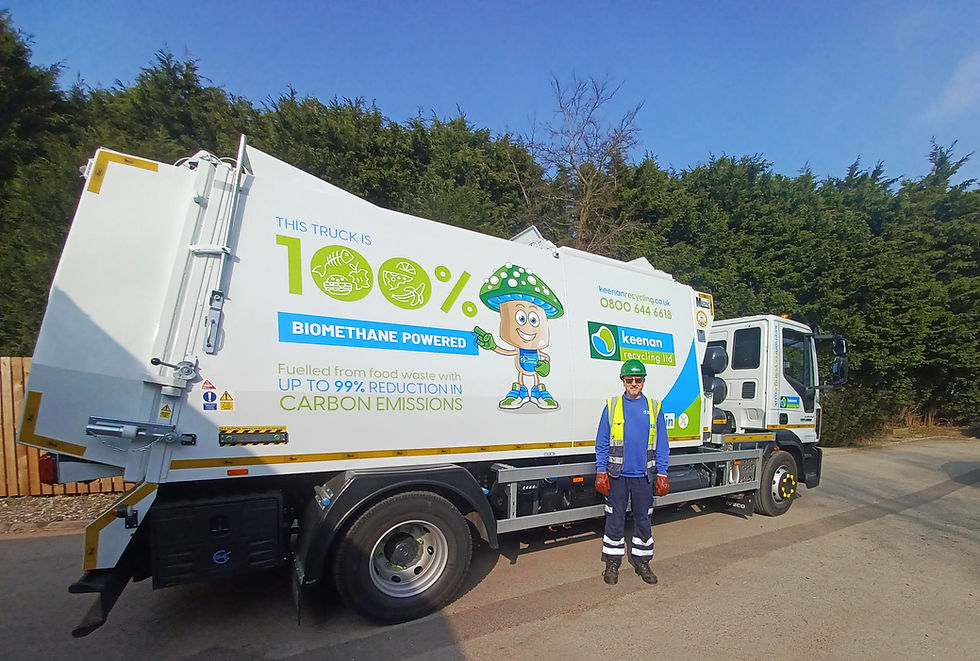Keenan Recycling sustainability update 2025: powering a circular future
- Susan
- Oct 7, 2025
- 2 min read
Keenan Recycling has released its Sustainability Update 2025, showcasing major progress in the nation’s transition toward a net zero, circular economy.
The report highlights the company’s achievements in transforming food waste into renewable energy, cutting emissions, and driving positive social impact.

‘At Keenan Recycling, we have always believed food waste should never go to waste,’ said Fergus Healy, head of strategic development and net zero. ‘Every bin we collect is more than waste diverted from landfill – it is clean energy, carbon savings, and a contribution to a more sustainable UK.’
Since launching its national food waste collection service, Keenan Recycling has doubled its operational scale – from 845,000 bins in 2021 to a projected 1.5 million bins in 2025, a 78% increase. The company’s fleet transition is equally impressive: by the end of 2025, 23% of vehicles will run on low carbon alternatives such as biomethane, HVO, electric, and hydrogen. This shift is cutting emissions, improving air quality, and demonstrating that sustainable transport is possible today.
Through anaerobic digestion, Keenan’s collected food waste is transformed into renewable energy – expected to generate 20,320 MWh in 2025, enough to power almost 8000 homes for a year. Some of this energy even fuels Keenan’s biomethane trucks, creating a closed loop model that proves circularity in action.
Beyond carbon reduction, Keenan’s Social Value Matrix measures the company’s broader impact – from supplier engagement to community volunteering. Every employee receives two paid volunteer days annually, strengthening local causes while embedding sustainability into daily practice. In 2025 alone, its initiatives are projected to prevent 44,000 tonnes of CO₂ emissions, equivalent to 16,000 long haul flights.
One highlight of 2025 is Keenan’s landmark partnership with Pizza Hut, the company’s largest national contract to date. Since mid 2024, over 189 tonnes of food waste have been collected, preventing 130 tonnes of greenhouse gas emissions and generating renewable energy to power UK homes. Through advanced carbon reporting tools, Keenan empowers customers to measure their direct contribution to net zero.
Keenan has reduced carbon intensity per truck by 21% since 2021 and continues to invest in biomethane, hydrogen, and electric vehicles, backed by accreditations including SBTi alignment and ISO 14064-1 certification.
Fergus Healy added, ‘We are proving that low carbon logistics and circular energy solutions are not just achievable – they are commercially viable and essential to the UK’s sustainable future.’






Comments